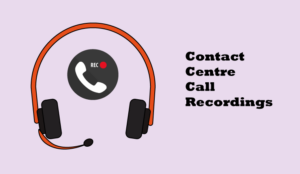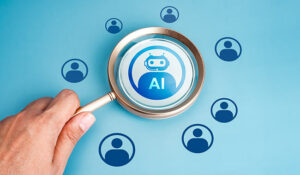“This call is being recorded for quality and compliance purposes.”
We’ve all heard that familiar phrase when contacting customer service. It’s an acknowledgement that our interaction may be replayed to improve service quality and ensure adherence to certain regulatory guidelines.
And for many businesses, that’s all it is: a simple voice recording available for playback at a later date. But what if it could do more?
What if it could be analyzed in real-time for actionable data? What if it could then feed that data to AI engines to uncover trends, insights and opportunities?
With today’s AI-powered enterprise call recording capabilities, it can. Let’s explore how it works and what it means to enterprises looking to pull more data—and more value—from every customer interaction.
Businesses Today Need Enterprise Recording
Before we get into the nuts and bolts of how enterprise recording works, we need to address why businesses need it.
Today, customers are interacting with enterprises across a wider range of channels than ever before—most of which are now digital.
As these channels become more sophisticated, so too do their regulatory, industry and internal monitoring requirements.
Yesterday’s method of manually listening to call recording samples cannot keep pace with the massive amount of digital interaction data businesses are required to capture and parse through. They need assistance to ensure compliance and quality standards are met.
That’s where AI comes in. AI can “listen” to thousands of hours of call recordings in a fraction of the time it would take an entire auditing team.
Unlike human auditors, AI doesn’t get tired, distracted or burned out doing the same, repetitive tasks, making it exponentially more efficient and accurate. All it needs is recorded data. That sounds simple enough, right? Not exactly…
Call Recording Isn’t What It Used to Be
Today, the vast majority of enterprises have some form of audio recording in place within their contact centres.
However, these legacy systems were largely designed for the human ear. They were never intended to interact with AI engines, which require huge volumes of audio data. As a result, they offer limited insights, subject to human listening and interpretation.
That’s changing, thanks to advancements in enterprise recording and artificial intelligence. Today, the technology behind breakthrough solutions is enabling enterprises to extract high-quality data from audio recordings in an AI-ready, structured format. And it’s doing it in real-time.
What Is AI-Ready Recording Data?
Simply put, it’s all structured and unstructured voice and screen data from customer interactions that’s ready for use within AI applications.
That includes metadata, screen tagging and conversation transcriptions. To be AI-ready, recording data must be accurately captured, transcribed and formatted for AI use.
Until now, that’s been a challenge. Unlike humans, who can distinguish spoken data from background noise and interpret context naturally, AI engines require high-quality audio—and lots of it—to effectively analyze and “understand” what’s being said.
However, advanced algorithms, like those used by U-Capture, can now ensure that audio data meets AI quality requirements.
Another challenge involves access. Enterprises that rely on third-party recording platforms often have limited access to raw audio files.
That’s changed with the advent of open APIs. Using open APIs, overlay solutions can not only capture high-quality audio but also ensure enterprises have the sovereignty to use their data as they wish—including within AI applications.
From Recordings to ROI: How Do We Get There?
Capturing AI-ready data is just the first step. Capitalizing on it requires the tools to turn that data into actionable insights. That’s where speech analytics come into play.
Advanced speech analytics solutions can analyze thousands of hours of audio and text-based interactions for rich insights into customer needs, preferences, behaviors and more.
These insights can help enterprises zero in on the true Voice of the Customer (VOC) and identify opportunities to improve customer experience.
Pairing AI-ready enterprise recording with advanced speech analytics enables enterprises to maximize the ROI of their AI investments.
Using a fully integrative AI and data platform organizations can leverage AI-ready recording data for a wide variety of use cases across all enterprise applications.
It can also combine and cross-analyze audio data with data from other sources to paint a hyper-detailed picture of the customer, allowing businesses to create personalized experiences and craft highly targeted campaigns that drive revenue.
Accessible, AI-ready data. Rich, actionable insights. Enterprise-wide applications. Enterprise recording and AI make it possible.
Used together, these solutions enable businesses to make smarter, data-based decisions and act with greater speed, accuracy and agility than ever before. And in today’s competitive market, those who use their data the most effectively stay miles ahead of their peers.
Author: Guest Author
Published On: 27th Feb 2024 - Last modified: 6th Dec 2024
Read more about - Guest Blogs, Uniphore



































